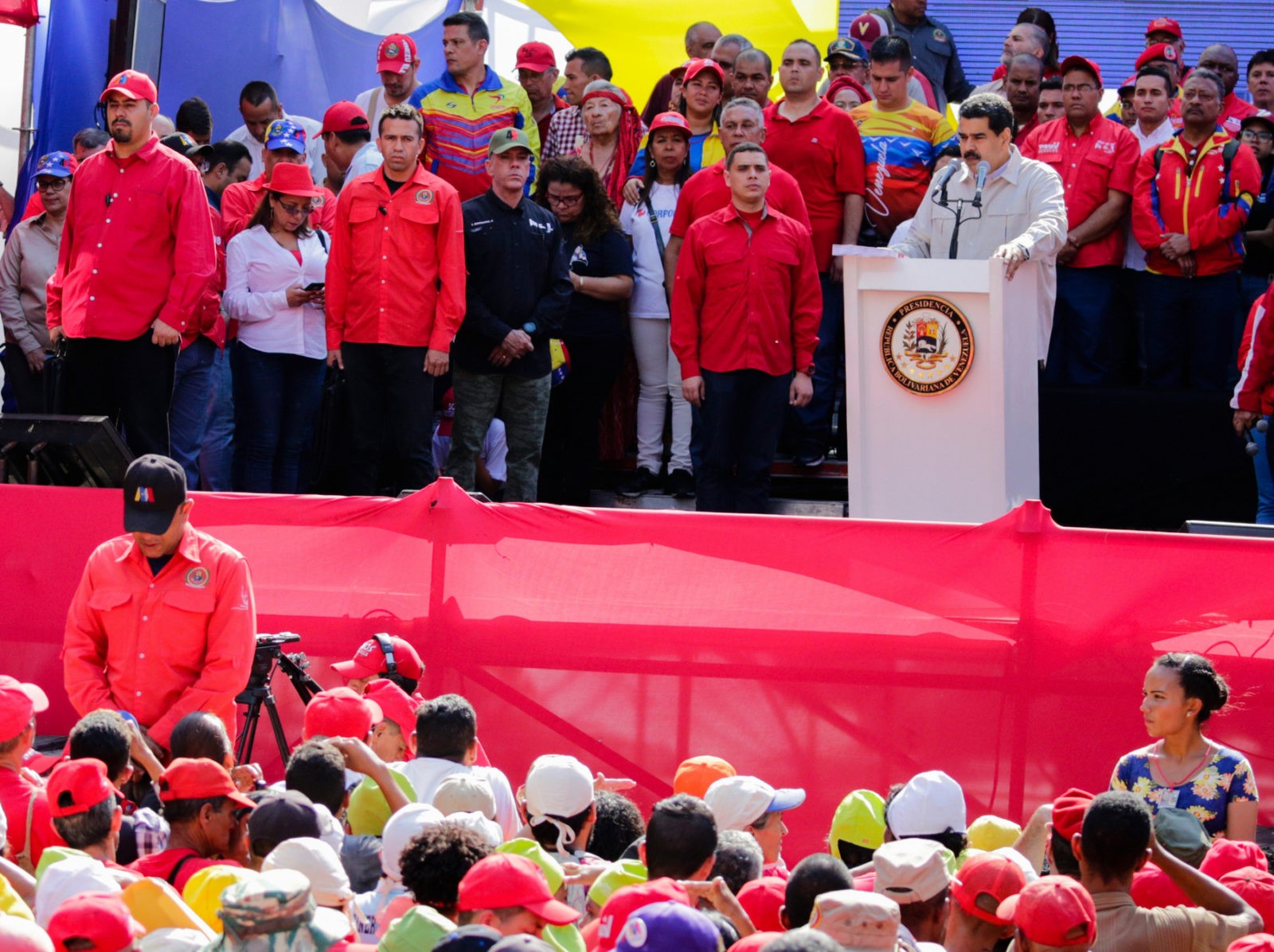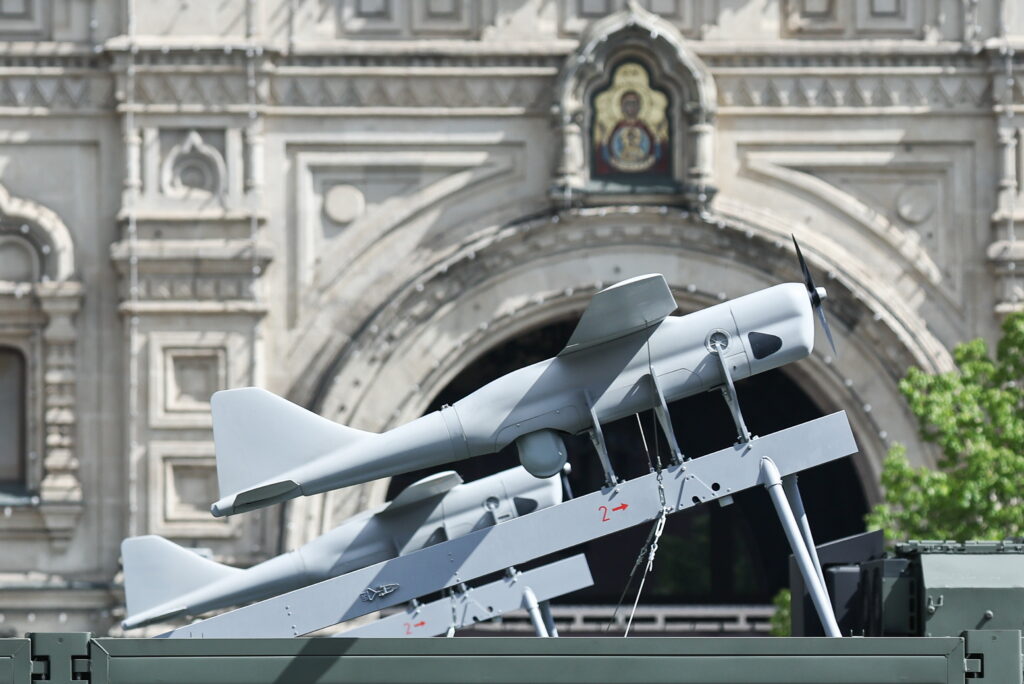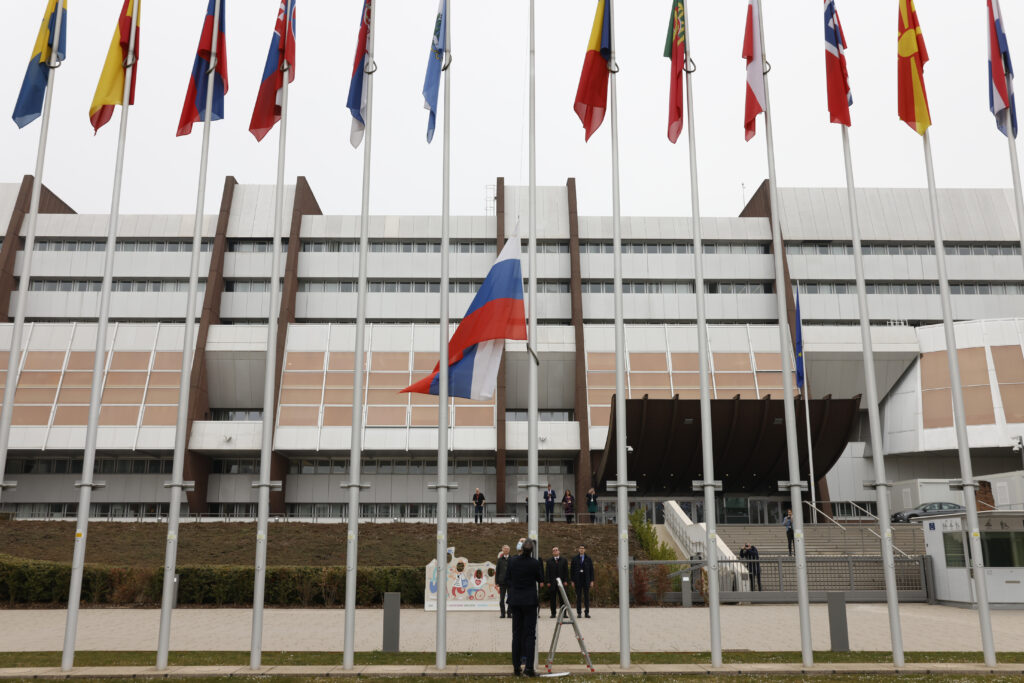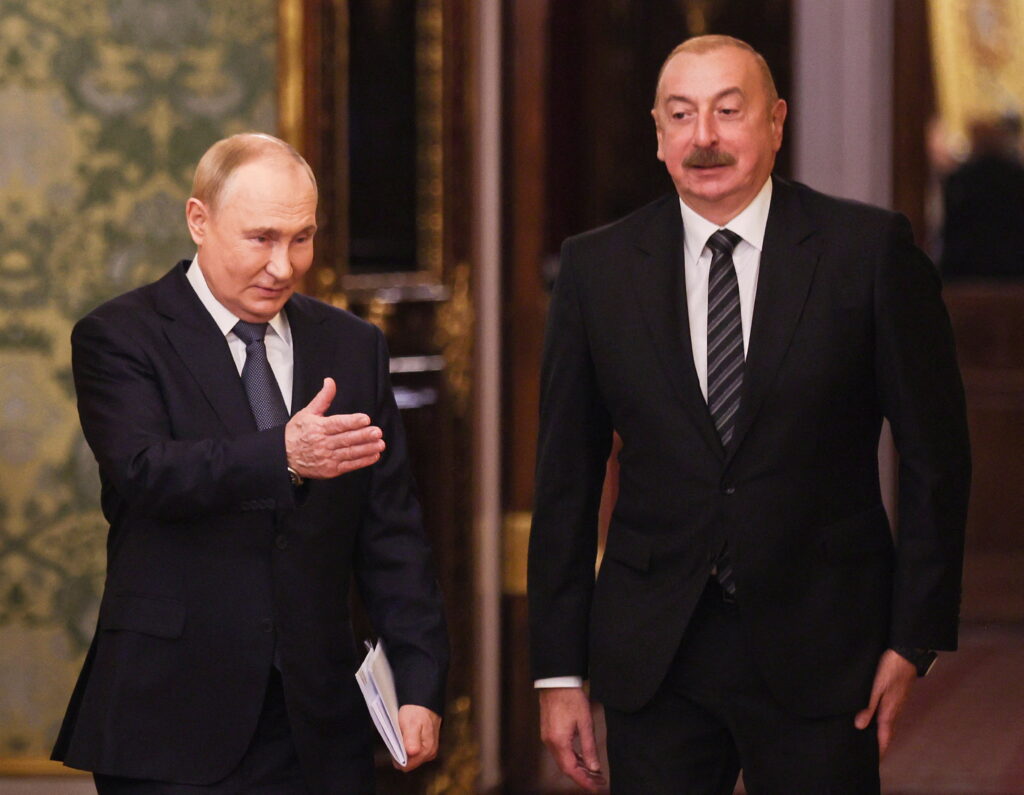Donald Trump won the US 2016 presidential election, running on a slogan of ‘Make America Great Again’. Collusion or not, it was clear at the time that Moscow, and many Russians, preferred him to Hillary Clinton. One explanation offered of the Kremlin’s support for Trump was that he was an all-too-real American version of Vladimir Zhirinovsky, the flamboyant provocateur politico who runs in every Russian presidential election as a show of how unpalatable and divisive the choices are if one does not vote for Vladimir Putin. Thus, the Kremlin backed Trump because it believed he would make America weak, not great. Recent events in Venezuela, the latest country caught up in Russian-American geopolitical competition, show why the Kremlin made this bet.
Reasserting Monroe
The Bolivarian regime led by President Nicolas Maduro has been on life support for over a year. Millions have fled the country; mass unrest has become a semi-regular occurrence; oil production has fallen precipitously; starvation and hunger are widespread. On 23 January the US-Allied Venezuelan opposition made its move. National Assembly Head Juan Guaido declared himself the legitimate acting president.
The move was coordinated with US backing. Within a day, not only had Washington recognized Guaido’s legitimacy, but so did most of its allies. US National Security Advisor John Bolton soon said that that the US was willing to intervene in the crisis if necessary. He even invoked the Monroe Doctrine, which holds that Washington has the sole right to intervene in Latin America.
The Doctrine, however, is a fantasy. Latin America has long been an area of geopolitical competition. The Soviets were underwriting the Castro regime in Cuba way back in the 1960s, and they continued to be active across Latin America for much of the Cold War. More recently, any China watcher over the last decade has witnessed an uptick of infrastructure loans and activity. While the Kremlin’s investment in Venezuela today far outstrips that in Cuba or Nicaragua, it has also supported political actors in Ecuador and Bolivia, with varying degrees of success.
The Monroe Doctrine was also out of vogue during the Obama administration. One of the first major foreign policy crises that Obama faced was the 2009 coup d’etat in Honduras. Obama labelled the move, in which the military ousted left-leaning president Manuel Zelaya, as illegal. However, Obama refused to intervene. He ultimately acquiesced to new elections, even without there being a major geopolitical aspect to the crisis.
The end of Obama’s presidency occurred alongside a precipitous decline in the fortunes of the Left in Latin America. Centre-right candidate Mauricio Macri won the 2015 Argentine presidential election; in Brazil, the Worker’s Party lost control of the federal government in 2016 after 13 years in power. In Chile, Conservative candidate Sebastian Pinera retook the presidency in 2017.
It is unsurprising that Bolton and other Republicans in the current administration have prioritized reasserting the Monroe Doctrine. Venezuela was perhaps the ideal setting for such a reassertion. The US had lost all influence here over nearly two decades of government under the Socialist leaders Hugo Chavez and Nicolas Maduro, his handpicked successor. Venezuela had largely become a fief of China and Russia. Both countries had invested heavily in the country and offered tens of billions of dollars in loans. Not-too-long ago it was the region’s largest oil producer. It also has a sizable diaspora in the United States. Perhaps most key, it was near the point of economic and political collapse when Trump took office.
Planning failures
Venezuela’s opposition had won the 2015 parliamentary elections by a sizable majority. The victory gave them a constitutional majority of 109 seats in the 167-person chamber. This was no fluke; turnout was 74 percent, a record for legislative elections in the country. The result came amid two years of pain in oil markets. (Fossil fuels are Venezuela’s sole significant earner of the foreign currency needed to underwrite the corrupt and high spending Maduro regime.) In 2017, with oil prices slightly higher, Maduro wanted to bring his parliament to heel. He organized fraudulent elections, where he wanted a Constituent Assembly to effectively replace the National Assembly. At this point the Trump Administration could justifiably claim to be acting in the name of the Venezuelan people. His administration slapped sanctions on members of the Constituent Assembly.
Yet the Trump Administration did not have a timetable for any transition in Venezuela. It would later emerge that Trump had suggested a military intervention. But that this did not have the support of then-National Security Advisor H.R. McMaster and then-Secretary of State Rex Tillerson. Trump fired the pair in March 2018. He promoted the more hawkish Mike Pompeo from the CIA and brought in John Bolton, a former Bush advisor widely seen as one of the most hawkish defense officials in recent US history.
The next time events came to a head in Venezuela this January, Washington was set to take a more hard line stance. The continued deterioration of the humanitarian situation in the country and the ultimately-mistaken belief that Russia and China were unwilling to put more good money after bad in Venezuela led the Trump Administration to assume Venezuela was ripe for regime change.
Washington subsequently agreed a plan with Guaido and the opposition to try and force change in the country by planning a mass delivery of humanitarian aid in early February. Primarily arriving from Colombia, a close Washington ally with a right-wing government, the plan was that either Maduro would be forced to accept the aid or that the security forces and people would rebel to demand its acceptance.
Neither occurred. Around 1,000 Venezuelan soldiers did defect over the border, however; protesters and anti-government protesters clashed with the still loyal security forces across the country.
Internal disputes within the Trump Administration, distrust from the political opposition, and Trump’s individual ineptitude in the aftermath of the failed February aid deliveries created a vacuum of inaction. Moscow has exploited this. Although US actions continued to ramp up, Russia’s state-run Rosneft moved to help mitigate the pain for Caracas. The company arranged payments and increased deliveries of naphtha. This substance is needed to dilute Venezuela’s heavy crude for refining. The Kremlin repeatedly expressed its support for the Maduro regime’s legitimacy. And it has offered itself as a mediator to the crisis.
Goodbye Monroe
The US did acknowledge that Moscow was an interested party. In March, US Special Representative to Venezuela Elliot Abrams was dispatched to hold talks with Russian Deputy Foreign Minister Sergei Ryabkov. Negotiations faltered. Though Ryabkov said “We assume that Washington treats our priorities seriously,” while Abrams declared “both sides emerged with a better understanding of the other’s views.” So much for the Monroe Doctrine.
Within a week, Russia signaled it was willing to take more action in support of Maduro. It dispatched some 100 military advisors on two Russian Air Force planes. They arrived in broad daylight and were photographed by local journalists.
Trump has since only ramped up his own rhetoric on Venezuela, as have other White House officials. Yet it is clear that there are different tracks. Trump is willing to engage directly with Russia, while much if not most of his administration still holds to a position more in line with traditional views of the Monroe Doctrine. Namely, that no other power should have a significant say in the country’s future.
Bolton himself declared the Monroe Doctrine “alive and well” on 17 April. On 30 April, Guaido would again attempt to win power. He appeared at a military base outside Caracas and called for the military to back him. The attempt was bungled; no direct outside support was forthcoming. Even the 1,000 aforementioned deserted soldiers awaiting in Colombia were barred from joining.
If the Monroe Doctrine was as alive as Bolton asserted in mid-April, it had died by the month’s end. Pompeo blamed the failure of the latest uprising on the Kremlin. He said it had convinced Maduro not to flee. US officials have not explained how regime allies who Bolton claimed were willing to defect to Guaido chose to remain loyal.
On 4 May, Trump called Putin to discuss the situation in Venezuela, whose fate may now hang in the balance of great power games between the two countries. After their call, Trump said that he believed Putin’s claim that Russia was not planning to get involved.
Trump either does not understand or does not endorse the Monroe Doctrine, which Bolton has so recently advocated and with which Abrams is also long associated.
US Domestic divisions
Differing perceptions of the Kremlin and the threat it poses are a key feature of this White House. Trump seeks to rekindle the bromance between himself and Putin on display in Helsinki last July. That is despite the widespread opposition to doing so within his administration and from leading Republicans in Congress.
During their 4 May call, Putin reportedly offered to withdraw Russian military support for Maduro if Trump did so in Ukraine. Russia would love to exchange recognition of a US sphere of influence in Latin America for Washington doing so in Eastern Europe and Eurasia.
Talks between Foreign Minister Sergey Lavrov and Pompeo are unlikely to result in such an agreement. Even following the release of US Special Counsel Robert Mueller’s report on the investigation of the 2016 presidential election, it appears unlikely that Trump can rebut the US foreign policy establishment in so drastic a manner as to seriously entertain Putin’s purported suggestions for a Venezuelan-Ukrainian bargain. But it is not unthinkable.
Doing so would pose a real challenge for Congressional Republicans who have already been willing to oppose Trump’s foreign policy in Yemen and Russia, to varying degrees, despite aligning with him on every other major issue. Meanwhile the mistrust and policy differences between Trump and his own administration will cause its own policies to remain jumbled. Worryingly, the one thing uniting Trump and the traditionally-minded Republican foreign policy contingent in his administration is their hawkishness
Meanwhile, Trump’s opportunities for political action through Congress are near non-existent. Democrats do not trust Trump’s Russia policy amid ongoing controversy over the Kremlin’s support for Trump in the 2016 presidential election. Nor do they trust Bolton and his contingent due to the legacy of the 2003 invasion of Iraq. Back then, Bolton helped lead the US’ own misinformation campaign to promulgate the myth Washington had reliable intelligence that Saddam Hussein possessed weapons of mass destruction.
Next steps
Trump unilaterally ordering military action is possible. While it would bear major political costs, it also could secure Trump crucial backing from Latinos in Florida ahead of the 2020 election. Yet as the above factors create deadlock and inertia in Washington, the increased cost for Russia in backing up Maduro is fairly small.
Sending a few hundred soldiers, and potentially an anti-submarine ship, humanitarian supplies, oil expertise is worth the ensuing discord in Washington alone. The possibility of gaining further control of Venezuela’s oil and gas reserves is an added bonus. Compared to the war in Ukraine and events in Syria, public attention to the conflict in Russia is also far more muted. This minimizes the cost of any deal or withdrawal to Putin domestically. Even if the US does intervene militarily in Venezuela, the Kremlin would likely welcome the resulting division in US politics. The geopolitical benefits from its Venezuela relationship are also far more limited than the potential benefits of its oil investments. So it would likely pivot to prioritizing holding onto those. Russia achieved something similar with regards to Iraq’s West Qurna oil fields after the invasion of Iraq.
Events in Venezuela show that when Washington grows more divided, which is one achievement Trump can claim, the cost of Russia’s attempts to assert itself and challenge the geopolitical order fall precipitously.










